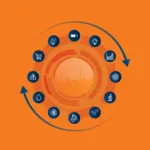Summary
The chemical sector is the backbone of Europe’s industrial transformation. Cefic calls for effective demand-side policies to support the transition to low-carbon and circular products and ensure fair access to clean products market opportunities for EU producers. With global competitors already deploying local content rules, Europe should consider a similar move, following a balanced and targeted approach to complement other demand creation tools: align incentives with sustainability goals, respect trade rules, and tailor criteria to complex value chains. EU preference, where appropriate, needs to act as a catalyst – not a constraint – for innovation, resilience, and competitiveness.
Key recommendations
- While criteria for private procurement can be challenging to align with international trade rules, requirements linking EU/national/local financial incentives, or public procurement to a reasonable minimum share of European content can in principle incentivise local production without excluding products from the market.
- Any EU preference criteria should be clearly and transparently justified.
- While EU preference criteria can be useful to drive market demand, alternative or complementary policies and criteria could be considered.
- Supporting EU industry and strengthening ties with trusted trade partners must go hand-in-hand, e.g. by opening EU preference conditions to Free Trade Agreement partners.
- We recommend a careful impact assessment is conducted before EU content or similar criteria are implemented. In particular, appropriate definitions for “European content” that capture entire value chains, rather than only final assembly, while not causing disproportionate administrative burden need to be identified.












